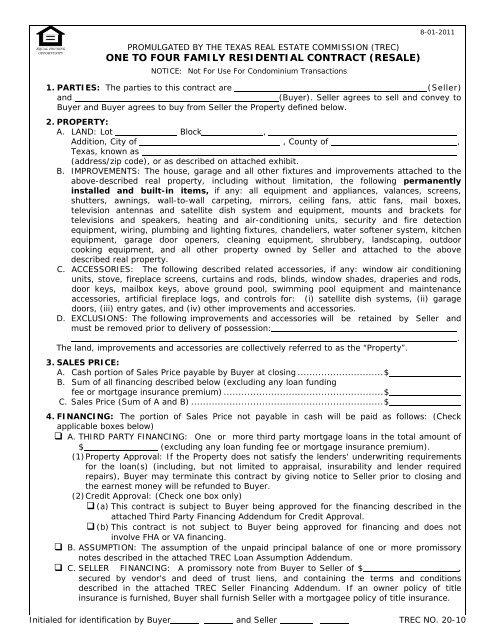
A listing agent plays a crucial role in any real estate transaction. The listing agent will be the seller's advocate, and will communicate with the buyer's representative on your behalf. He or she will also offer guidance and support throughout the transaction, including negotiating the best possible price. Having a listing agent also gives you inside information on the local market.
Doing job
Listing agents are responsible for selling a seller's house by setting a price, marketing it to potential buyers, and preparing it for sale. A listing agent is responsible for maintaining and developing relationships with past clients, referral sources, and other people to ensure a smooth selling process. A listing agent who is a good communicator and has experience in the realty industry should be detail-oriented. They should also be able to work independently.
To get a higher selling price, a listing agent must be able to market the client's property. In addition, a listing agent must be able to research comparable properties and the local real estate market. This will make the listing process run smoother and help a seller sell their home for a higher price. Lastly, listing agents must be able to manage their time well and meet deadlines.

Commission structure
In the US, a listing agent will receive a commission if he or she sells your property. It will generally be a fixed portion of the sale amount. Some states will split the commission between the buyer agent or the listing agent. This is known as a dual agency and is complicated.
The commission structure is determined by the broker's requirements and the performance of the listing agent. The commission split can be 50-50, 60-40, or 70-30. Some brokerages might also use tiered splits which alter the percentage depending on volume or broker's goals. This commission structure is intended to retain top agents by making their payments more predictable.
Responsibilities
The responsibilities of a listing agent go beyond listing properties and presenting buyers offers. They also advise clients about market conditions, mortgages, and legal requirements. They also use marketing strategies to increase sales. Some agents can also take care of leads that are generated by buyers agents.
Pricing the property accurately is one of the most important duties of a listing agent. This is essential for the seller's success. In addition to a competitive price, listing agents should make sure that the listing photos are taken professionally and accurately, as this is where the first showings of a property will occur.

Cost
Consider the commission they charge when you are choosing a listing agency. Listing agents typically get a percentage of the sale price. For example, a $200k property with a 7% commission would equal $14,000 in commission. The listing brokerage would be paid $7,000 while the listing agent would earn a 60% cut of the remaining commission. This would amount to $4,200.
However, your listing agent can still negotiate to reduce the price. If you sell multiple properties through an agent, some agents will offer commission rebates.
FAQ
How much money will I get for my home?
The number of days your home has been on market and its condition can have an impact on how much it sells. According to Zillow.com, the average home selling price in the US is $203,000 This
What should I look out for in a mortgage broker
People who aren't eligible for traditional mortgages can be helped by a mortgage broker. They work with a variety of lenders to find the best deal. Some brokers charge a fee for this service. Others provide free services.
What is a reverse mortgage?
A reverse mortgage is a way to borrow money from your home without having to put any equity into the property. This reverse mortgage allows you to take out funds from your home's equity and still live there. There are two types: government-insured and conventional. You must repay the amount borrowed and pay an origination fee for a conventional reverse loan. FHA insurance will cover the repayment.
How do I know if my house is worth selling?
If your asking price is too low, it may be because you aren't pricing your home correctly. A home that is priced well below its market value may not attract enough buyers. To learn more about current market conditions, you can download our free Home Value Report.
How much should I save before I buy a home?
It depends on the length of your stay. If you want to stay for at least five years, you must start saving now. However, if you're planning on moving within two years, you don’t need to worry.
Statistics
- It's possible to get approved for an FHA loan with a credit score as low as 580 and a down payment of 3.5% or a credit score as low as 500 and a 10% down payment.5 Specialty mortgage loans are loans that don't fit into the conventional or FHA loan categories. (investopedia.com)
- Based on your credit scores and other financial details, your lender offers you a 3.5% interest rate on loan. (investopedia.com)
- When it came to buying a home in 2015, experts predicted that mortgage rates would surpass five percent, yet interest rates remained below four percent. (fortunebuilders.com)
- 10 years ago, homeownership was nearly 70%. (fortunebuilders.com)
- The FHA sets its desirable debt-to-income ratio at 43%. (fortunebuilders.com)
External Links
How To
How to Buy a Mobile Home
Mobile homes can be described as houses on wheels that are towed behind one or several vehicles. Mobile homes have been around since World War II when soldiers who lost their homes in wartime used them. Mobile homes are still popular among those who wish to live in a rural area. There are many options for these houses. Some houses are small, others can accommodate multiple families. Even some are small enough to be used for pets!
There are two main types for mobile homes. The first is built in factories by workers who assemble them piece-by-piece. This is done before the product is delivered to the customer. A second option is to build your own mobile house. Decide the size and features you require. Then, you'll need to ensure that you have all the materials needed to construct the house. To build your new home, you will need permits.
You should consider these three points when you are looking for a mobile residence. First, you may want to choose a model that has a higher floor space because you won't always have access to a garage. You might also consider a larger living space if your intention is to move right away. Third, make sure to inspect the trailer. If any part of the frame is damaged, it could cause problems later.
You should determine how much money you are willing to spend before you buy a mobile home. It's important to compare prices among various manufacturers and models. Also, consider the condition the trailers. Many dealers offer financing options. However, interest rates vary greatly depending upon the lender.
A mobile home can be rented instead of purchased. Renting allows you the opportunity to test drive a model before making a purchase. Renting is expensive. Renters generally pay $300 per calendar month.